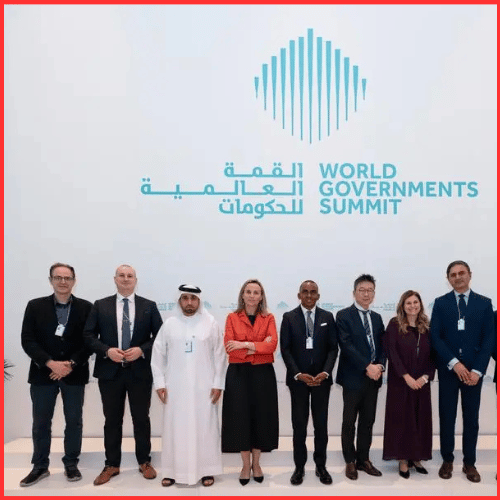In an effort to establish itself as a mediator between the US, China, and the EU in a crucial tech industry following Brexit, Britain will host the first global artificial intelligence (AI) safety meeting next month.
The meeting on November 1-2 will put a lot of emphasis on the existential threat that some parliamentarians, like Rishi Sunak, the prime minister of Britain, worry AI poses. The technology might be used by criminals and terrorists to develop weapons of mass destruction, according to Sunak, who wants the UK to become a hub for AI safety.
Contrarily, the EU has thus far given priority to the technology’s effects on corporate transparency and human rights.
At Bletchley Park in southern England, where mathematician Alan Turing deciphered the Enigma code used by Nazi Germany, Sunak will host about 100 visitors.
A guest list that includes legislators, AI pioneers, and academics is led by U.S. Vice President Kamala Harris and Google DeepMind CEO Demis Hassabis.
According to tech investor and one of the summit’s two main organisers, Matt Clifford, the summit’s goal is to launch a global conversation on AI regulation.
Clifford remarked, “It’s not a parliament. “Neither are we creating laws or treaties. We’re attempting to include a variety of voices with extremely diverse viewpoints in the discussion.
The program for the event, which was released by the UK government this week, includes debates on the technology’s unanticipated advancements and the possibility that humans will lose control of it.
However, other professionals contend that the conference shouldn’t concentrate so heavily on existential dangers. They claim that there are more urgent issues at hand.
The majority of the people I interact with find it surprising that the UK has adopted this stance, according to Stephanie Hare, an author and eminent expert in technological ethics. What are you going to do about it, I ask you?
High-profile individuals had already been warning about the existential dangers of AI when Sunak originally made the summit announcement in June. Elon Musk, the CEO of Tesla, demanded that such systems’ development be put on hold. Geoffrey Hinton, a “godfather of AI” and former Google researcher, said that the technology posed a greater immediate threat to civilization than climate change.
Why Britain chose to be the centre of AI safety has drawn criticism. Supporters assert that the summit will highlight London’s status as a global leader in the technology sector. British IT startups raised more money in 2022 than their counterparts in France and Germany combined, according to latest Dealroom data.
In the weeks following Sunak’s announcement of the conference, OpenAI declared it would establish its first office outside of the United States in London, and Google released a study claiming that additional AI investment could increase Britain’s GDP by $488 billion by 2030.
There are three major poles in the world: the United States, the EU, and China, according to Marc Warner, CEO of the London-based AI company Faculty, who is present at the summit. It’s unlikely that any of those would permit it to be located in the others if you tried to do any sort of international partnership.
It makes sense, he continued, “if you agree that London is the third-most significant AI city, after San Francisco and Beijing, and that Britain is comparatively neutral to the three major blocs.”
Vice President Vera Jourova recently received an invitation to the event, according to the EU, although her attendance was not confirmed.
A spokeswoman told Reuters, “We are currently considering potential EU participation.”
Brando Benifei and Dragos Tudorache, the two members of the European Parliament who oversaw the creation of the AI Act for the Union, were still waiting for invites as of the time of writing.
The AI Act, which has been focused on defending fundamental rights, appears to have a different definition of safety than this incident, according to Benifei.
The British government received criticism over one probable attendee: China, despite the fact that the architects of AI policy in Europe may not be attending.
In an interview with Politico, Finance Minister Jeremy Hunt justified the choice, saying: “If you’re trying to create structures that make AI something that overall is a net benefit to humanity, then you can’t just ignore the second-biggest economy in the world.”















